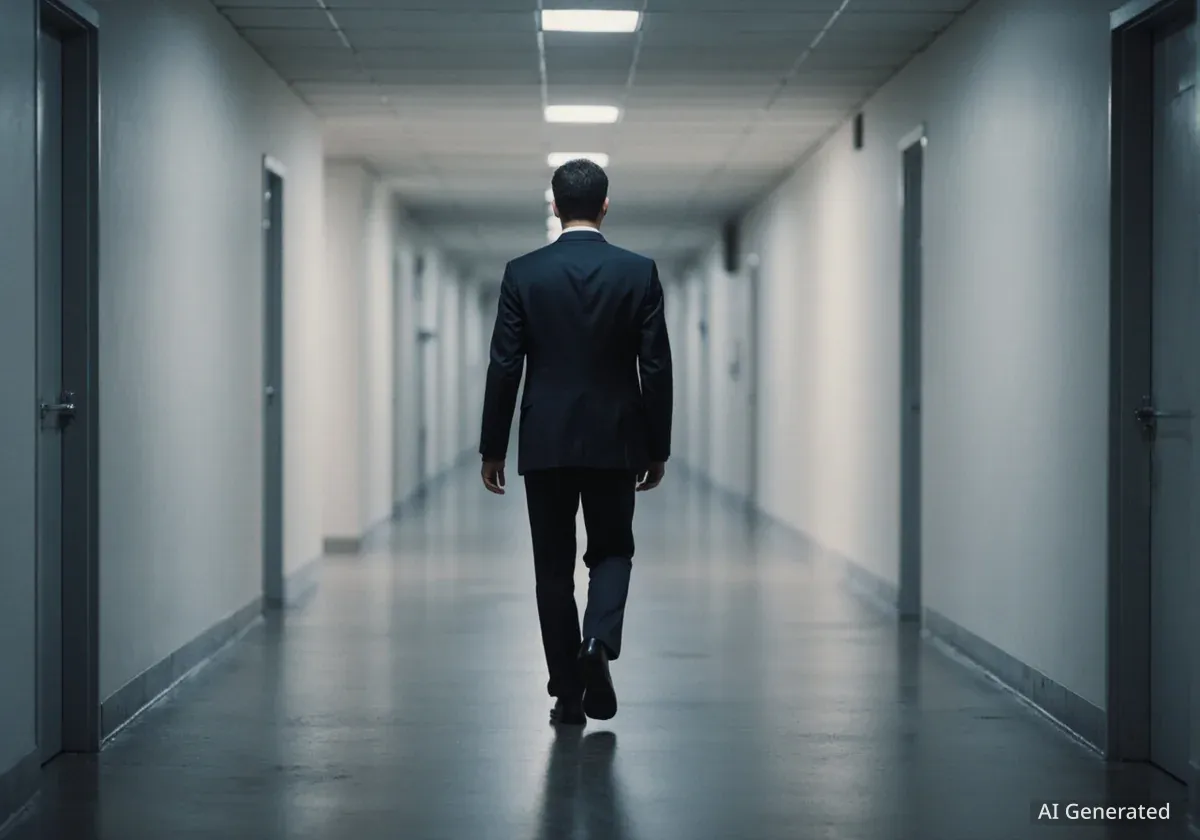Actress Julia Roberts recently shared her views on the debate surrounding separating artists from their work, specifically referencing the iconic British band The Smiths. Her comments arose during an interview discussing her new film, After The Hunt, where the band's music plays a significant role.
Roberts argued that despite controversial opinions or actions by an artist, their creative output still holds value and should be considered. This perspective challenges the growing trend of 'cancellation' in public discourse.
Key Takeaways
- Julia Roberts advocates for engaging with The Smiths' music despite Morrissey's controversial views.
- Her comments emerged from a scene in her new film, After The Hunt, where the topic is addressed.
- Roberts emphasizes the importance of nuance in evaluating artists and their work.
- She believes avoiding art due to artist's behavior limits understanding.
The Smiths' Role in After The Hunt
The discussion around The Smiths and their frontman, Morrissey, is directly tied to Luca Guadagnino's upcoming film, After The Hunt. Roberts stars in the movie alongside Ayo Edebiri, Andrew Garfield, Michael Stuhlbarg, and Chloë Sevigny. The film features a scene that brings the contentious issue to the forefront.
According to a review by Time magazine, one particular scene involves Chloë Sevigny's character, Kim, a psychotherapist in the Yale Philosophy Department. Kim expresses surprise at hearing a Morrissey song in a college bar. This surprise stems from Morrissey's alignment with right-wing causes, which has led to him being considered a controversial figure among progressive circles.
Film Details
- Director: Luca Guadagnino
- Cast: Julia Roberts, Ayo Edebiri, Andrew Garfield, Michael Stuhlbarg, Chloë Sevigny
- Theme: Explores ethical dilemmas, including the separation of art and artist.
Roberts' Character Differentiates The Smiths from Solo Morrissey
In the film, Roberts' character, Alma Imhoff, a fellow Yale philosophy professor, corrects Kim. Alma points out that the song playing is actually a Smiths track, "Heaven Knows I’m Miserable Now," not a solo work by Morrissey. This distinction is crucial to the film's narrative. Sevigny's character, Kim, dismisses this difference, suggesting the distinction is not important.
This cinematic moment directly influenced Roberts' recent interview with The Times of London. Journalist Greg Williams, who described After The Hunt as a "MeToo ethics sizzler," pressed Roberts on the broader implications of this scene.
The Art Versus Artist Debate
Julia Roberts used the interview as an opportunity to articulate her perspective on the complex issue of separating art from the artist. She firmly believes that people should continue to engage with The Smiths' music, even if Morrissey's personal views are problematic.
"I love the Smiths," Roberts stated during the conversation with Williams. The discussion covered "separating the art from the artist, cancellation, and if it is best to just bin your copy of The Queen Is Dead."
Roberts' argument centers on the idea that avoiding an artist's work due to their behavior or beliefs can limit one's understanding of the world. She suggests that such avoidance might hinder personal growth and a complete view of culture.
Background on Morrissey's Controversies
Morrissey, the former frontman of The Smiths, has faced criticism for his political statements and support for right-wing figures and nationalist parties. These views have led to significant backlash from fans and critics, prompting discussions about whether his music can be enjoyed independently of his controversial stances.
Understanding and Nuance
Roberts further explained her reasoning, emphasizing the importance of understanding and nuance in these situations. She believes that shielding oneself from certain art prevents a "fully realized understanding" of various viewpoints and expressions.
Roberts continued, "If you don’t know what it is that you’re being shielded from — how can you know better, do better, create better?" This highlights her belief that engagement, even with challenging art, can lead to greater insight and personal development.
She acknowledged that some actions are universally recognized as unacceptable. "Some things are big, horrible, ugly. And we can all agree that, yes, that was bad. Let’s not do that again." This suggests a line exists where actions become indefensible.
However, Roberts also argued for careful consideration in other cases. "But, then, there are other times where you think, well, who’s to say that this should be put in a barrel, set on fire? Who says that? We need nuance." This statement underscores her call for a more measured approach rather than immediate condemnation.
The Broader Cultural Impact
The debate over separating art from the artist is not new. It has gained renewed prominence in the era of social media and increased public scrutiny of celebrities and public figures. Roberts' comments contribute to this ongoing discussion, offering a perspective that prioritizes artistic engagement and critical thinking.
Many critics and fans grapple with how to approach the work of artists whose personal lives or political views conflict with their own. The Smiths, with their deeply influential music and Morrissey's later controversies, present a clear example of this challenge.
Roberts' views align with those who argue that judging art solely by the artist's character can lead to a loss of valuable cultural contributions. This perspective suggests that a piece of art can transcend its creator's flaws and offer unique insights or emotional experiences.
Expert Opinions on The Smiths' Legacy
The lasting influence of The Smiths' music remains undeniable. Just last year, Danielle Chelosky, a music journalist, rated the band's 10 greatest songs. Her work suggests a continued appreciation for their artistic output, regardless of later controversies involving Morrissey.
The band's albums, such as The Queen Is Dead, are frequently listed among the most influential albums of all time. Their lyrical depth and distinctive sound have left a significant mark on alternative music and popular culture.
Roberts' position suggests that a balanced view is necessary. It involves acknowledging the artist's actions while still being open to the artistic merits of their work. This approach encourages a more complex understanding of culture and creativity.
The conversation initiated by After The Hunt and further explored in Roberts' interview invites audiences to consider their own relationship with art created by controversial figures. It highlights the tension between moral judgments and aesthetic appreciation.
Ultimately, Roberts' argument champions the idea that a deeper engagement with art, even art produced by problematic individuals, can foster a more comprehensive understanding of human experience and creativity. This perspective encourages critical thought over automatic rejection.




